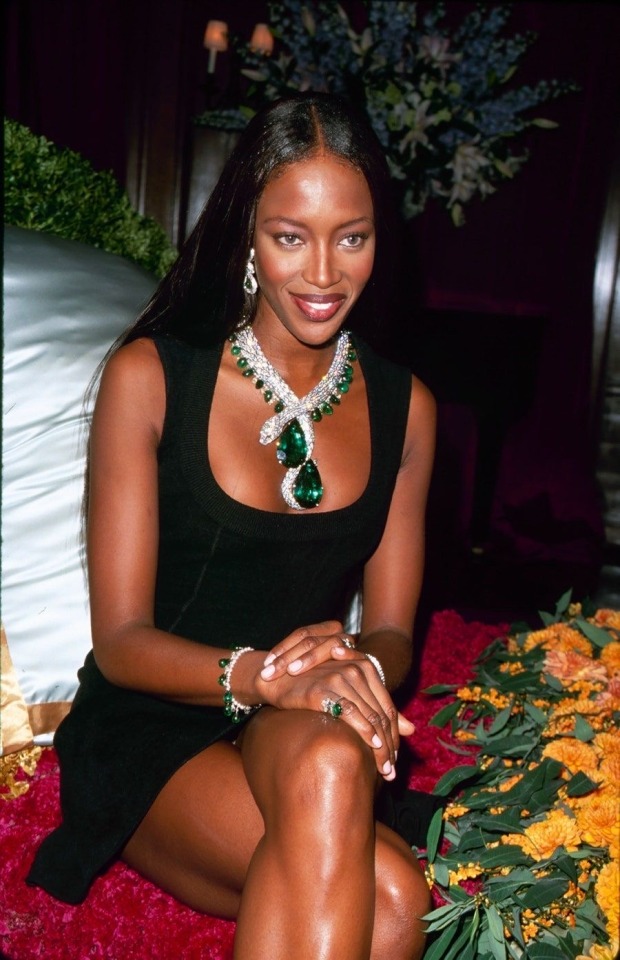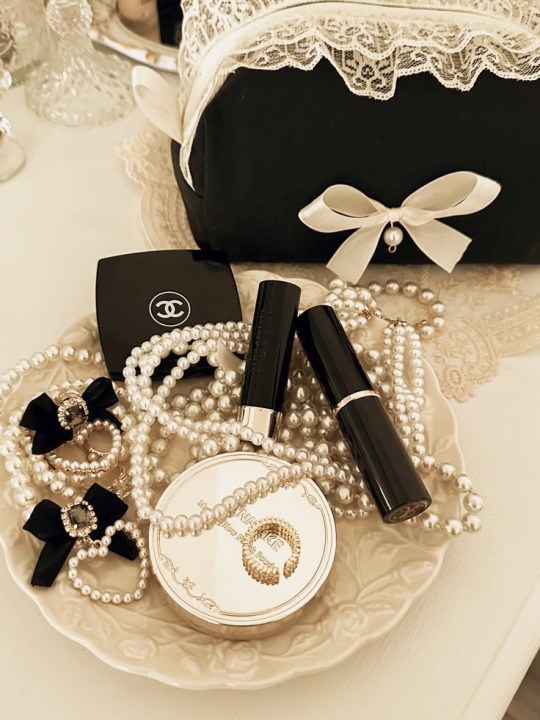#communication skills
Explore tagged Tumblr posts
Text
I wish that university education was still a sign that you had a decent amount of general knowledge. If I've understood it correctly, way back in history it was practically mandatory to also be into literature and the humanities. It was expected of you to be a good writer. I have read old student magazines and old speeches and whatnot, and I realize that that's a biased sample, but people used to be so good at communicating their thoughts without dumbing them down or making simplifications.
A more practical example is the quality of academic publishing. Read a paper from the 90's or something like that and compare it to a paper with the same number of citations from recent years. The older stuff is usually a delight to read, while these days you'll more often than not get a badly articulated slop of word salad that is just trying to hide the weaknesses in their study by using impressive words.
Another thing is the quality of teaching. I have studied for a good long while due to earning two bachelor's degrees and being on my way to a second master's degree. I have seen a drop in quality in real time. There absolutely still are some really good teachers in academia, but it's getting harder with budget cuts and the constant pressure to teach more people whilst getting more grants and publishing more articles. Professors will look you in the eyes and tell you that they've given you all the materials to understand the topic if you try to talk to them about how they're listing a string of facts instead of teaching. One was incredulous when I tried to tell him that I personally don't learn math if you just list equations and their uses but don't spend any time on how the equations work and don't assign exercises. The lowest level classes are still usually kinda ok, but in the upper levels you get classes where you're wasting hours trying to read bad materials on a simple algorithm because you can't be sure your professor interpreted the source material the same way as you did based on their lectures or the materials they're sharing.
Effective communication is crucial to STEM. You can't have that without being more generally into the so-called softer sciences and arts.

something harrowing and ironic about the fact that people are misinterpreting this post and yelling at her about how STEM is important.
please learn to read.
#education#stem#stem academia#stemblr#teaching#literature#art#humanities#reading comprehension#reading#communication skills#communication
3K notes
·
View notes
Text
Femme Fatale Guide: Game-Changing TED Talks Everyone Should Watch
"How Five Simple Words Can Get You What You Want" by Janine Driver
"Master your Mindset, Overcome Self-Deception, Change your Life" by Shadé Zahrai
"How to talk to the worst parts of yourself" by Karen Faith
"Think before you speak, hacking the secret of communication" by Catherine Molloy
"The Hidden Code For Transforming Dreams Into Reality" by Mary Morrissey
"Don't Believe Everything You Think" by Lauren Weinstein
"The public speaking lesson you never had" by DK
"Programming your mind for success" by Carrie Green
"How to stop screwing yourself over" by Mel Robbins
"Own Your Behaviours, Master Your Communication, Determine Your Success" by Louise Evans
"The psychology of seduction" by Raj Persaud
"Why we're unhappy -- the expectation gap" by Nat Ware
"Think Fast. Talk Smart" by Matt Abrahams
"Increase your self-awareness with one simple fix' by Tasha Eurich
"5 steps to designing the life you want" by Bill Burnett
"Staying stuck or moving forward" by Dr. Lani Nelson Zlupko
"To reach beyond your limits by training your mind" by Marisa Peer
"Emotional laws are the answer for better relationships" by Diana Wais
"Feelings: Handle them before they handle you" by Mandy Saligari
"Cultivating Unconditional Self-Worth" by Adia Gooden
#ted talks#youtube recommendations#self love#cult of personality#self awareness#self reflection#self improvement#communication skills#social skills#life advice#life skills#girl advice#dream girl#girl talk#femme fatale#dark femininity#dark feminine energy#it girl#high value woman#the feminine urge#female power#queen energy#female excellence#high value mindset#self esteem#level up journey#glow up#femmefatalevibe#success mindset#self talk
7K notes
·
View notes
Text
'Saying things in a funny way' is an op skillset for real though.
Latest example 'when you're late coming home and I don't know why I get worried about you and think perhaps there has been a car accident and this is why I send check-in texts' = distressing concept, explains the texting as something other than controlling behavior but still sounds neurotic and may increase any aversion felt toward it
'When I don't know why you aren't home yet I start to think maybe you got eaten by a car' = funny, sympathetic, likely to make such texts less burdensome to receive.
Why is communication like this.
#hoc est meum#car accidents#communication#communication skills#why is tumblr's first idea when i start a tag with 'commu'#bd/sm community#i know they stopped autofilling from our own past tags to facilitate greater homogeneity across blogs in hopes of making tags more communal#but is that really the most-used 'community' tag on tumblr#or just like#most used on blogs i interact with?#idk how sophisticated this algorithm is#i know i have not typed that tag before because i did not know they used that forward slash#commedy#comedy
468 notes
·
View notes
Text




Interviews with Incredible Women
Here are some interviews that I think are absolutely brilliant, and I’ll explain why.
These women are trailblazers in what they do and I think, have really nailed the interview process down and you can tell because the more natural a person appears to be on camera, the more effort has gone into looking that way. Uneasiness, discomfort, shyness are easily spotted, especially with body language - and you can see the confidence just radiating from them.
Now, you may not like some of these women for whatever reason. I don’t really care about that - I’m simply looking at their oratorship, their presence in front of everyone and how they carry themselves. There’s obviously lots of powerful female orators, leaders and figures out there but I can’t possibly list them all so excuse me if I’ve missed out on your favourites - I’ll add them next time.
There’s a few things these women have in common:
1. They don’t always jump to answer. They think for a second or two before answering.
2. There are no filler sounds. They speak at a measured rate, which allows them to think ahead about their sentences.
3. They have a vast vocabulary.
4. They are not shy in disagreeing with the person in front of them. None of that diplomatic nonsense. There is clearly a strong sense of self identity and personality, unapologetically.
5. They show their vulnerabilities, weaknesses and hard times as thing of the past and accept them without a fuss- they don’t oppress themselves with it, and come across as strong survivors rather than wallowing in self pity. It’s what makes people admire them.
6. They don’t answer what they dont want to. And they beat around the bush with it, clearly stating that they will not answer those questions.
7. One thing I loved about Rekha’s interview - when questioned about an ex lover, she asks: “hey, is this interview about me or Mr Bacchan?” And it didnt come across as haughty or egoistical.
8. There’s feminineness in their strength. Them being strong in their stances is not masculine, overly aggressive or yelling - its firm, to the point, yet graceful.
This is what you should be looking at, carefully:
- body language
- Vocabulary
- Talking speed
- Gestures
- Facial expressions
- Voice modulation
- Expressing emotions
Video Links
1. Rekha
2. Princess Ameerah Al-Taweel
3. Meryl Streep
4. Indira Gandhi
5. Princess Diana
6. President Sirleaf
7. Lady Gaga
8. Naomi Campbell and Vivienne Westwood
9. Anna Karina
10. Michelle Yeoh
11. Mika Brzezinksi
#c suite#powerful woman#ceo aesthetic#personal growth#that girl#productivity#strong women#getting your life together#feminine energy#balance#female#women#speakers#how to speak#oratorship#interviews#powerful speaker#voice#communication#communication skills#public speaking#iconic women#icon#confidence#how to be confident#female mentors#stories#tv interview#famous
850 notes
·
View notes
Text
Social life affirmations 🦋🪩
(part 1 : social butterfly)





I have a bubbly, fun, outgoing extrovert personality.
I am the embodiment of a social butterfly.
Everyone admires my bubbly energy.
I am so talkative and I love talking.
I always let my personality shine.
I have such a good reputation.
I have great social skills and I can socialize with others easily.
I always have interesting things to say in any conversation.
I always have the right thing to say at the right time.
I'm a great listener.
I radiate positive energy everywhere I go.
People enjoy conversations with me.
I can keep any conversation going for hours.
All my conversations go fully smooth and fun.
I always have the best arguments ever.
Arguing is a child's play for me.
I effortlessly build fulfilling and harmonious friendships.
I always attract true, supportive and kind friends
I always have the time and the opportunity to go out with my friends frequently.
I always get invited to so many interesting social events.
I always go on cool adventures with my friends and create great memories.
Confidence is my middle name.
I am so confident in everything I do.
I am excellent at public speaking.
I have a beautiful clear voice and pronunciation.
People love to hear me speak.
I can be a magnet of fame whenever I desire.
It's so easy for me to become popular if i want to.
I have my desired number of followers on my desired social media account.
I am grateful
@venuslilgirl...🩷🌷
#venuslilgirl affirmations#social life affirmations#social butterfly#social butterfly affirmations#confidence affirmations#extrovert#extrovert personality#esfj#public speaking#public speaking affirmations#social skills#communication skills#friends#attract friends#manifest friends#friends affirmations#fame#popularity#manifestation#affirmations#law of attraction#law of assumption#affirm#positive affirmations#affs#affirmdaily#affirm and persist#manifesting#loa affirmations#mbti esfj
339 notes
·
View notes
Text
On DM Etiquette
Is it so much to ask that people, idk, have an introduction to their DMs? I'm totally up for chatting with people and have made great friends on tumblr but SO many random blogs I've never interacted with before start talking to me like they know me or asking me questions without so much as a "hello" and it's so annoying. A simple way to not be a creep if you wanna DM me:
"Hi, my name is [REDACTED]. I've been following you for a while and I was wondering if you'd be up to chatting sometime?"
Like, just be a human, y'all. Good communication skills are required for kink so this is just alarming as fuck from a community that I expect more from. Please do better.
9 notes
·
View notes
Text
youtube
#transgender#trans#lgbt#lgbtqia+#ftm#transmasc#mtf#transfem#trans visibility#transblr#queer#queer podcast#lgbtqia+ community#lgbtqia+ podcasts#Youtube#black transgender#intamacy#communication skills
8 notes
·
View notes
Text
New Skill — Master Something New in 90 Days
Learning a new skill in 90 days is both a challenge and an incredible opportunity. It’s a chance to expand your horizons, build confidence, and unlock potential you didn’t know you had. Whether it’s learning to code, mastering a new language, or picking up an instrument, the 90-day framework gives you enough time to make real progress while maintaining focus. Success in this journey requires intention, consistency, and a willingness to embrace the process.
In the first 30 days, focus on building the foundation. This is the exploration phase, where curiosity and commitment collide. Start by clearly defining what skill you want to learn and why it matters to you. Is it for personal growth? Career advancement? Or simply the joy of learning? Clarity will fuel your motivation when things get tough.
Break your skill into smaller, actionable steps. For instance, if you’re learning a language, focus on the basics—common phrases, pronunciation, and grammar rules. If it’s photography, spend this time understanding your equipment and practicing composition. The goal is to build a strong foundation, not to master everything at once. Dedicate time each day to practicing. Even 30 minutes of focused effort can add up to significant progress over 90 days. Consistency is more important than intensity at this stage.
During the next 30 days, transition into the development phase. Now that you have the basics down, it’s time to push yourself further. Identify gaps in your understanding and focus on improving those areas. If you’re learning an instrument, this could mean working on more complex songs or techniques. If you’re coding, start building small projects that challenge your skills.
Seek out feedback wherever possible. If you’re working with a mentor or teacher, ask them to critique your progress. If you’re self-taught, compare your work to high-quality examples or use online forums to connect with others who share your goals. Feedback is crucial for identifying areas of improvement and avoiding stagnation.
At this stage, variety is key. Incorporate different methods of learning to keep things engaging. Watch tutorials, listen to podcasts, read books, or join communities centered around your skill. Immersing yourself in different perspectives will help you deepen your understanding and keep your momentum strong.
The final 30 days are all about mastery and refinement. This is where the skill starts to feel more natural, and your focus shifts to improving performance and polishing what you’ve learned. If you’ve been writing, create a final project, like an essay or short story, to showcase your progress. If you’re learning a language, challenge yourself to hold a conversation with a native speaker. Push your limits and measure how far you’ve come.
Set aside time to reflect on your journey. What worked well? What challenges did you overcome? This reflection helps solidify the skill in your mind and gives you confidence to continue growing beyond the 90 days. Celebrate your progress, no matter how small. Acknowledge the discipline and effort it took to get here.
Throughout the 90 days, adopt a growth mindset. Understand that mistakes are part of the process, not signs of failure. Every misstep is an opportunity to learn. Stay flexible in your approach, and if something isn’t working, don’t be afraid to pivot. Surround yourself with resources and people that inspire you to keep going.
By the end of 90 days, you’ll have transformed curiosity into capability. More importantly, you’ll have proven to yourself that you can achieve meaningful growth with dedication and effort. Learning a new skill isn’t just about the skill itself—it’s about the confidence and empowerment you gain along the way. Embrace the process, and you’ll come out on the other side with more than just a skill—you’ll have a new part of yourself.

#ambitious women#beautiful women#glow society#beauty#the glow society#fit beauty#health#self love#self improvement#self care#skill#skilldevelopment#coping skills#social skills#skillup#communication skills#life skills#skill issue#self development#self discipline#self worth#self awareness#self reflection#self empowerment#self esteem#self help#self portrait#self ship#wellness#wellnessjourney
8 notes
·
View notes
Text
Graphology: The Study of Handwriting
Graphology, the study of handwriting, offers intriguing insights into personality and behavior. I find it fascinating how the way we write can reveal aspects of our character—our emotions, motivations, and even how we interact with the world.
Graphologists analyze various elements of handwriting, including size, slant, pressure, and spacing, to interpret individual traits. While some consider it a pseudoscience, the connection between our writing style and psychological characteristics is an engaging area of exploration.
Understanding graphology can enhance our self-awareness and improve communication. It offers a unique lens through which we can examine ourselves and others, providing insights into human nature that may otherwise remain hidden.
#Graphology#Handwriting Analysis#Personality Traits#Behavioral Psychology#Writing Style#Self-Expression#Pseudoscience#Communication Skills#Psychological Insights#Handwriting Characteristics#Graphological Techniques#Human Behavior#Emotional Expression#Analyzing Scripts#Individual Differences#Forensic Graphology#Personality Assessment#Visual Communication#Self-Discovery#Interpretative Skills#today on tumblr#new blog
10 notes
·
View notes
Text

Commission Available. DM Please.
#DM Please#drawing commisions#digital commisions#communication skills#ai#retro#vintage#animation#futurism#ai artwork#humor#music#nostalgia#illustrator#comics#youtube#illustration#art#photographers on tumblr#funny#drawing#digital illustration#pixel art#1950s#technology#ai image#cyberpunk aesthetic#sci fi art#vintage photography#commission
7 notes
·
View notes
Text
Femme Fatale Guide: Types of Relationships To Help You Thrive In Life
Table of Contents:
Healthy Relationship With Yourself
Peer-To-Peer Relationship
Mentorship Relationship
Goal-Oriented/Accountability-Focused Relationship
Emotionally-Intimate Relationship
Physical/Sexually-Intimate Relationship
Acquaintance Relationships
Second-Degree Relationships
Types of Relationships:
Healthy Relationship With Yourself: Internalize and act with the knowledge that you're worthy of love, care, and nourishment, and have unconditional permission to work towards your goals & dream life. Eat healthfully, drink plenty of water, remain well-rested, move your body daily, maintain proper hygiene/a clean home, invest in your appearance to feel your best, live as a life-long learner, establish healthy habits/routines, get your finances in order, establish and maintain boundaries, make positive self-talk a priority.
Peer-To-Peer Relationship: Aka friendships, which are intended to offer mutual support and joy in life. These friendships thrive on having similar values and interests, which makes these individuals your greatest cheerleaders, advice givers/receivers, and partners in crime to have fun or offer platonic love/emotional support during traditional or difficult seasons in your life. Peer-to-peer relationships should add mutual excitement, encouragement, and emotional nourishment, and provide a soundboard for confidential information exchange, ears to listen without unnecessary or superficial judgment, and solicited advice from someone who has your best interest in mind.
Mentorship Relationship: This could be a boss, teacher, professor, aunt, uncle, or another trusted adult(s) who can guide you based on their more extensive life experience/wisdom. You can have one or several mentors at any life stage and for different purposes. These people should be trustworthy (keep your information confidential unless you state otherwise) and express their advice through the lens of your best interest rather than their own personal desires or biases (at least those left unchecked). Ensure you feel safe around these people, and their presence in your life is a mutually-nourishing relationship that allows you to grow personally, professionally, and relationally.
Goal-Oriented/Accountability-Focused Relationship: A coach, mentorship, or friendship based on the achievement of a particular goal or practice. This type of relationship can manifest as an accountability partner or support group. A therapist can also fulfill this role in your life (but like, a coach, this relationship is a one-way street to offer you emotional support/tools & resources). Some reasons for an accountability-oriented relationship include helping you achieve a certain health/fitness goal, establish better routines, advance in your career, let go of unhealthy habits, patterns, or addictions, better manage your finances, or help you get your other relationships (family, partner, friends, self-talk, boss, co-workers, etc.) in order.
Emotionally-Intimate Relationship: Someone with whom you feel an unwavering emotional closeness and connection. This person can be a partner you're involved with sexually/physically intimate with or not. Asexuality exists, of course. And emotional intimacy can definitely exist in close platonic relationships (like your best friendships) without any romantic or sexual feelings. These relationships are important because they allow you to let your emotional walls down and be your vulnerable, authentic self.
Physical/Sexually-Intimate Relationship: This relationship could be with a romantic partner, FWB, with multiple partners, purely with yourself, or somewhere in between. If you have sexual needs, it's important to find pleasurable ways to satisfy these desires in a way that makes you feel most fulfilled and respected. Let go of any shame you experience when exploring this side of yourself. Experiment and learn what you like/dislike/fantasize about. Use this information to elevate your practice and communication with any partner(s) for a heightened, more enjoyable, and potentially closer emotionally-bonding experience.
Hobby/Interest-Centric Relationship: These relationships can extend from co-workers to your friends in a certain class/the one friend you go on weekly walks with, follow a particular TV show with, exchange beauty tips with, "going out" friends, etc. While these connections aren't vulnerable to the degree of a close friendship/relationship, it is important to have some relationships that are purely based on fun, light-hearted conversations, and mutual hobbies/interests/lifestyles. Having someone to share these mutual experiences with helps you feel more connected to your environment/communities, not feel isolated/lonely when your friends, family, or intimate partner has different hobbies, career aspirations, or daily routines/lifestyle compared to you, and provides a mutual soundboard on issues, insights, and exciting moments in this particular area of your life.
Acquaintance Relationships: Everyone needs those friends, co-workers, or classmates they can just chat with when at a party, a group meeting, dinner, a special occasion, to grab a quick lunch or coffee, etc. These people are fun to be around and allow you to indulge in light, easy conversations to offer temporary social support/fulfillment. These relationships also expand your network for professional opportunities, making new friends, finding dates/a potential partner, interest groups/new hobbies, referral services/classes/spaces, and other contacts that can enrich your life.
Second-Degree Relationships: These are friend-of-a-friend type connections who can be/become your future business partners, romantic/sexual partners, co-workers, investors, hairdressers, realtors, stylists, finance managers, etc. Be ready to reciprocate these offers and be this person in others' lives, too. As your network gets broader and more dynamic, better chances and potential there is to connect with the right people to help you achieve your goals, desires, and overall life satisfaction. Success and efficiency rarely – if ever – exist in isolation.
#relationships#interpersonal relationships#networking#making friends#dating#social interaction#socializing#social connections#interpersonal skills#communication skills#networking opportunities#social networks#life advice#glow up tips#glow up era#level up journey#femme fatale#higher self#it girl#high value woman#high value mindset#success mindset#healthy lifestyle#successhabits#female excellence#dream girl#queen energy#female power#femmefatalevibe
766 notes
·
View notes
Text
throwing this out into the wide and wonderful world of the internet. Does anyone have book reccs on communication skills and conflict resolution?
#my post#don't know what to tag this as.#books#self help#communication skills#mostly for everyday use. working in a people facing environment and it'd probably help me fix some internal stuff.#i uh. have issues.
9 notes
·
View notes
Text
"Hang on," said Nobby, as they laid hands on the windlass of the portcullis. "There's someone down there."
"In the river?" said Colon.
He listened. There was the creak of an oar, far below.
Sergeant Colon cupped his hands around his mouth and issued the traditional policeman's cry of challenge.
"Oi! You!"
For a moment there was no sound but the wind and the gurgling of the water. Then a voice said: "Yes?"
"Are you invading the city or what?"
There was a pause. Then:
"What?"
"What what?" said Colon, raising the stakes.
"What were the other options?"
"Don't mess me about...are you, down there in the boat, invading this city?"
"No."
"Fair enough," said Colon, who on a night like this would happily take someone's word for it. "Get a move on, then, 'cos we're going to drop the gate."
Terry Pratchett, The Truth
#nobby nobbs#fred colon#mr. pin#mr. tulip#the truth#discworld#terry pratchett#the watch#guards#guard duty#night shift#interrogation#investigation#invasion#miscommunication#communication skills#trust#other options#the traditional policeman's cry of challenge#fair enough#long quote
146 notes
·
View notes
Text

Lower Elementary - Geometry
These students are very focused on their work in geometry! This material covers the parts of an angle, such as the vertex and sides, providing a solid foundation for more complex geometry. Students construct angles with the geometry sticks, reinforcing their understanding and visualization of how angles are formed. Collaborative learning is a key aspect of their work, enhancing their understanding of angles and fostering teamwork, communication skills, and a sense of community.
#geometry#angles#vertex#collaboration#communication skills#teamwork#academically prepared#intrinsic motiviation#tma#montessori#private school#arlingtontx#arlington#texas#infant#nido#toddler#early childhood#preschool#kindergarten#elementary#education#private education#nontraditional#the montessori academy of arlington
8 notes
·
View notes
Text
Helpful for learners:
How to communicate a new concept effectively? (How the human mind likes it)
Context:
Always provide context for everything you are about to talk about in connection to these questions-
-Why we need to know this?
-How does this co-relate to the grander scheme of things?
-How and where will this information benefit me?
Never take the context for granted. Give it its due share, and even if its kept short, it’s best not to skip it
Introduction:
When you begin, arouse curiosity in the topic to create a receptive audience. Start with something that is known and is simple to understand. Don’t deep dive into unknown territory immediately. Give the mind time to adapt and trek into the unknown terrain slowly and gradually.
Visualize it:
The concept or idea being described should take on a certain shape or form in the mind of the individual. It can be different from the way you visualize it. However, your words should arouse simultaneous images or symbolic representations in the mind’s eye of the recipient in order to fully grasp a concept, otherwise it is just something vague and abstract. Also, there needs to be a sequence or smooth transition from one point to another to form this picture in the mind’s eye. Sudden transgressions or jumping from topic to topic without forming connections/tying up loose ends can lead to confusion and disruptions in understanding the concepts.
Register:
The orally spoken words should register in the minds of the recipient, in a way that they are easy to repeat and comprehend. The language and vocabulary used should be replicable in the mind of the recipient on listening. They should follow through what is being said and not get stuck or lost at point where communication barriers pop up. Even if they translate it in their own head or make sense of it in their own way, it’s important that the information registers with them.
Wrap up:
The closing statements should have a general overview and revision of everything covered in the discussion. This allows for a complete understanding and assimilation of a concept. It also prepares the mind to come back to the moment and return to regular thought.
Feedback:
The communication from sender to receiver is not linear. It’s not as passive as it seems. The receiver is consciously engaging with the ideas and participating in the process of responding to the speaker, not just by listening, but by registering correctly what has been sent. The uninterrupted receiving by the listener to the depth of their being, completes the communication process. The feedback loop is hence accomplished when if you ask the audience to repeat what is said/express their piece of mind, they respond in a way that shows that they are on the same page as you.
#communication#communication skills#children#teachers#learners#students#concepts#parenting#school#university#author#business
6 notes
·
View notes